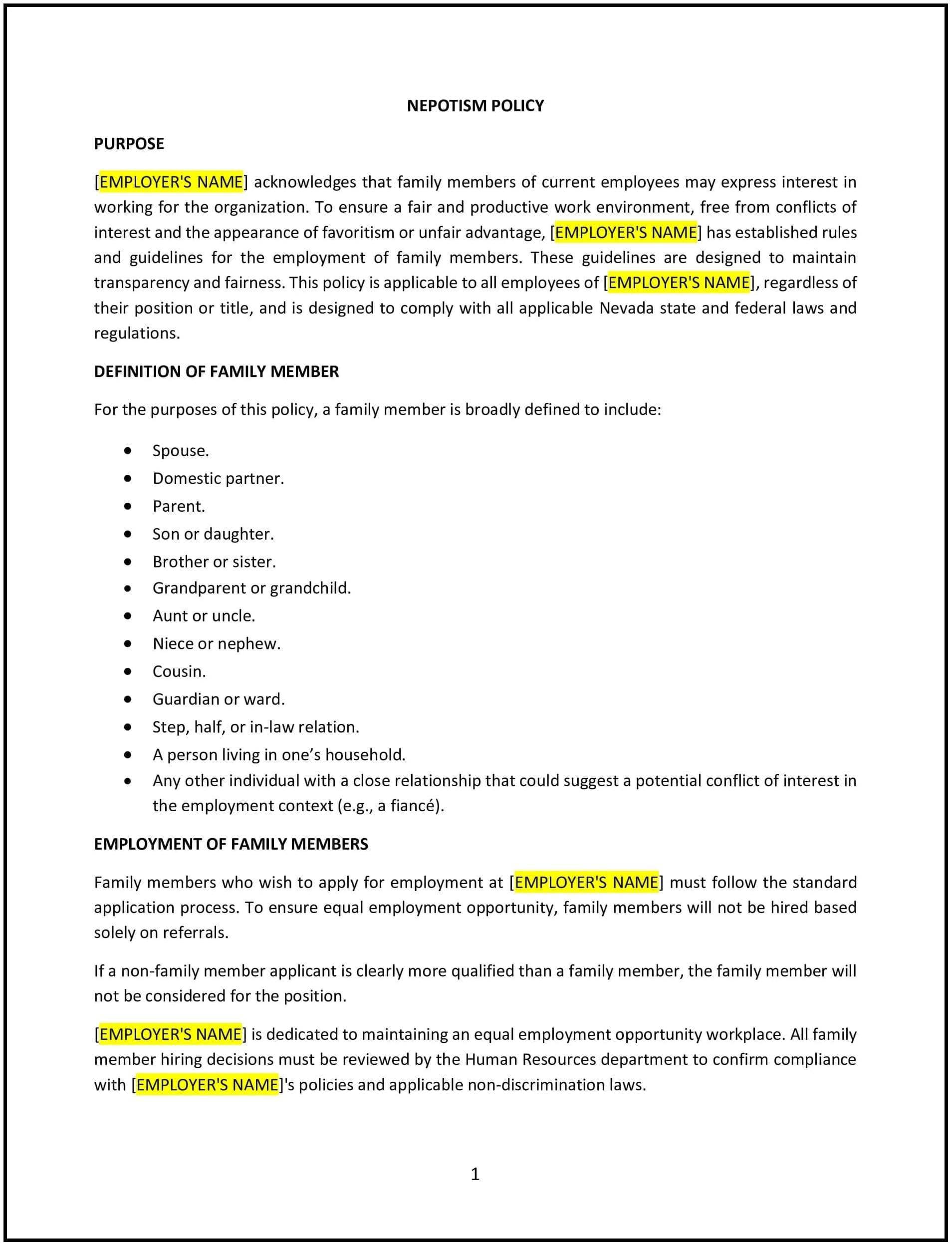Got contracts to review? While you're here for policies, let Cobrief make contract review effortless—start your free review now.

Customize this template for free
Nepotism policy (Nevada)
This nepotism policy is designed to help Nevada businesses maintain a fair and equitable workplace by managing situations where family or close personal relationships may impact hiring, supervision, or workplace decisions. It provides clear guidelines to avoid conflicts of interest, favoritism, or perceived biases.
By adopting this policy, businesses can promote a culture of fairness, reduce workplace disputes, and ensure that employment decisions are based on merit.
How to use this nepotism policy (Nevada)
- Define nepotism: Clearly outline what constitutes nepotism, such as favoritism in hiring, promotions, or other employment decisions based on family or close personal relationships.
- Establish disclosure requirements: Require employees to disclose relationships with current or prospective employees that could create a conflict of interest.
- Prohibit supervisory relationships: Prohibit situations where family members or close personal connections are in a direct reporting relationship to avoid conflicts of interest.
- Address hiring decisions: Specify that all hiring decisions must be based on merit and qualifications, with additional scrutiny applied when candidates are family members of current employees.
- Include conflict resolution procedures: Provide steps for resolving disputes or conflicts related to nepotism, including involving HR or an impartial third party.
- Emphasize confidentiality: Ensure that disclosures and any investigations related to nepotism are handled confidentially to protect the privacy of all parties involved.
- Enforce compliance: Outline consequences for violations of the nepotism policy, such as reassignment or disciplinary action, up to and including termination.
Benefits of using this nepotism policy (Nevada)
This policy provides several benefits for Nevada businesses:
- Promotes fairness: Ensures that employment decisions are made based on merit, reducing the risk of favoritism or bias.
- Enhances transparency: Encourages employees to disclose relationships and avoid conflicts of interest.
- Mitigates workplace disputes: Reduces the likelihood of misunderstandings or disputes related to perceived favoritism.
- Strengthens trust: Builds confidence among employees that the company values fairness and equal treatment.
- Promotes legal compliance: Aligns with federal and Nevada state laws regarding employment practices and anti-discrimination.
Tips for using this nepotism policy (Nevada)
- Communicate the policy: Ensure all employees understand the nepotism policy and the importance of transparency in workplace relationships.
- Create a disclosure process: Implement a simple and confidential process for employees to disclose relationships that may create conflicts of interest.
- Monitor compliance: Regularly review employment practices to ensure the policy is followed and no favoritism occurs.
- Train managers: Provide training for managers to handle nepotism-related issues impartially and consistently.
- Update as needed: Review and revise the policy periodically to reflect changes in workplace dynamics, company operations, or legal requirements.